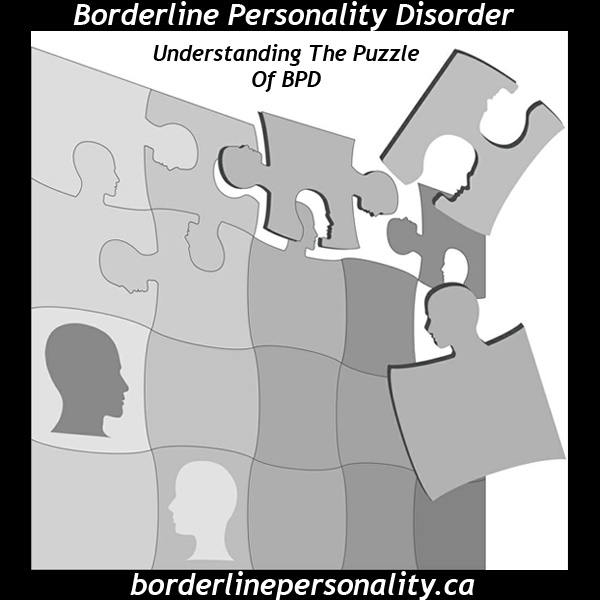Biology and Borderline Personality Disorder
Is Borderline Personality Disorder (BPD) caused by something biological or genetic? Is it inherited? Or is BPD caused by a combination of the nature/nurture theories? Is BPD caused by sexual abuse and/or other forms of abuse? Is BPD the result of a lack of nurture combined with an invalidating envrionment and/or someone just being too sensitive?
The biology of BPD is still being contested and argued about by experts everywhere. There are many ideas and theories about the cause or causes of BPD. How important is this? Is it important to you, if you have BPD? Do you feel like it will mean the difference between you getting well or not? What I know to be true is that what matters most, by far, is not what causes BPD, but is how you decide to cope with and what you decide (or not) to do about it in your own life.
The biology of BPD need not be a reason that anyone with BPD feels that they cannot get better and recover. Recovery from BPD is possible. The biology of BPD does not doom one to be borderline for life at all. What does keep people stuck in the active throes of BPD as I call it, is not yet opening to the awareness of all of the choices that you really do have and that you can learn to make. Borderline Personality Disorder is not your fault, but it is your responsibility to acknowledge, understand, and actively seek help and support to create much needed and wanted change.

I believe, as someone who has recovered from BPD, that there is a combination of at least two components in the causation of BPD - a neurobiological one (the genesis of which is unclear) and an environmental one. The reality of a neurobiological component with BPD in recent brain science may or may not be telling us more than we knew before. Why do I say that? Simply because changes or differences in the brain of some studied with BPD do not explain the reasons for those differences. For example, if a child is sexually abused or experiences other emotional or physical trauma (abandonment trauma) at a very young ages - before the brain is fully developed - that trauma can impact the neurobiology of the brain. What is also not talked about enough is the reality that when one works hard in recovery, a great deal of that cognitive work, and even traditional talk therapy, can and does create reparitive changes not only emotionally and psychologically but also neuro-biologically.
© A.J. Mahari, December 6, 2009 - All rights reserved.
BORDERLINE BIOLOGY By Neil Bockian, Ph.D. - PDF Format






